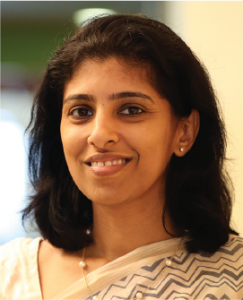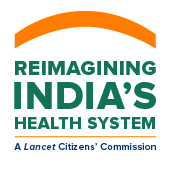In Conversation: Bindu Ananth, Co-founder and Chair of Dvara Trust
October 11, 2021

My research interest is in household finance. Specifically, how can better designed financial products and services improve stability and growth prospects of low-income households? I am a co-founder of Dvara – we are a unique financial inclusion platform in India that combines research and practice. Dvara Research has been engaged for over a decade in rethinking the Indian financial system in ways that deliver on both inclusion as well as stability.
It is increasingly becoming clear that relying on informal credit and asset sales as a dominant strategy to finance out-of-pocket expenditures in health is exacerbating vulnerability. So, we are now designing and testing tailored offerings, including a Health Savings Account that combines savings, insurance and a primary care subscription. We also have a partnership with an insurer where we are trying to increase the utilisation of primary and preventive care for at-risk insured customers. I am leading this overall effort for Dvara.
I am a member of the Financing workstream. Broadly this group is tackling two questions – how to get more money for health? How to get more health for money (being spent)? The first one is about increasing the size of the financing pie and the second looks at mechanisms where the spend can translate into better outcomes at the margin.
My colleagues, Tejasvi Ravi and Neela Saldanha, and I are focussed on the second question. We are interested in interventions such as increasing access & utilisation of primary/preventive care, improving the scale, scope and quality of primary care supply through newer approaches including managed care and industry interventions such as protocols and standards that ensure consistent and high-quality of care. I am also interested in testing financial product innovations aimed at shifting consumers from point-of-service payments to pre-paid solutions. The latter reduces financial distress for low-income households, everything else remaining the same.
I am hopeful that given the diverse membership of the Commission and its citizen focus, we highlight new ways of thinking about the journey to UHC and pathways that take into account India’s unique strengths and needs. I hope the Commission’s work creates a sense of urgency in the Governments (Centre and States) and the private sector to commit more financial resources and human capital to the task and approach it with more ambition.
